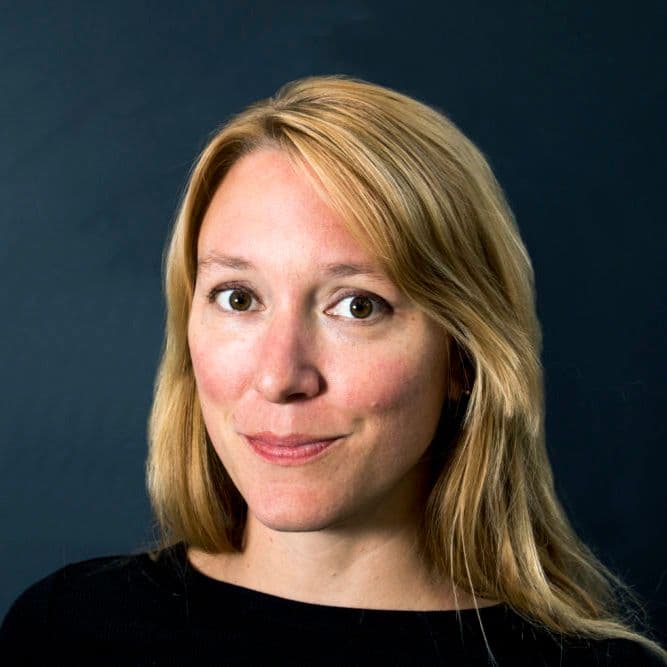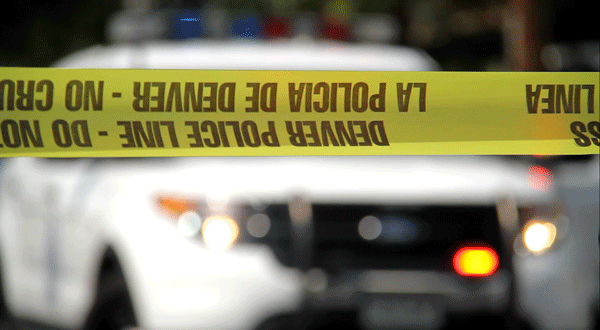This summer, Westminster police officers shot suspects four times — on June 26, Aug. 2, Aug. 26 and Sept. 4. Three of the shootings were fatal.
Including a fatal shooting by a Westminster police officer on April 28, that brings the department's total for the year to five police shootings in about nine months in a city of 112,812 (according to a 2017 Census estimate). Compare that to Aurora, where an officer shot and killed a man trying to defend his home from a violent intruder this summer: The city of 366,623 saw eight officer-involved shootings in the first nine months of 2018. In Denver — population 704,621 — there have been four in that time.
Each city has its own set of procedures for the aftermath when a police officer shoots someone, and it always includes a investigation by the district attorney's office for the judicial district in which the shooting occurred. Those reports are publicly available once the investigation has concluded and can be found on the district attorneys' websites.
At the end of this post, you'll find a timeline of officer-involved shootings in Denver, Westminster and Aurora for which investigations have concluded since the beginning of 2016.
All told, it's 19 in Denver, six in Westminster and nine in Aurora over the course of about two years and four months. (Again, this summer's under-investigation shootings are not included, except for one in Aurora, which is listed but we're excluding from this count.)
For a city that saw six shootings by a police officers in a little less than two and a half years prior, Westminster's four in less than three months feels like a lot. The same goes for Aurora. Six of its eight shootings this year happened between June 27 and Sept. 5.
So what's going on? Experts can't really say.
In 2016, 11 of the 16 officer-involved shootings across the three cities happened between May 1 and Aug. 31. In 2017, five of the nine shootings occurred between May and August.
We asked each police department if the trend reflected in our limited look at the numbers — that police officers shoot suspects more frequently in the warmer months — carried back further. The responses were mostly non-committal.
It's "hard to say definitively," Bill Hummel at APD said. "There’s more crime in the warmer months, period. I would say that in some odd sense law enforcement is a bit seasonal. During the colder months, more people are inside, we typically see an uptick in domestic violence. Of course, any crime can happen at any time."
"Officer-involved shootings happen at any time of the year," DPD's Jay Casillas wrote in an email. "Each officer-involved shooting is different and there is no way to look into why officer-involved shootings happen during one time more than others."
"I am not well-versed enough in crime stats to speculate if more OIS or crime in general occur in the summer months," Kate Kazell at WPD said, also via email.
We also asked Andrea Borrego, an assistant professor of criminal justice at Metropolitan State University of Denver, and she couldn't identify a summer trend either. The problem, she said, is a lack of data. Individual cities need to record, track and share incident numbers in a way that allows for the creation of a national database before any meaningful analysis can happen.
"Use-of-force incidents happen in less than 2 percent of all interactions, so it’s a very rare event, but that doesn’t mean it’s not important," she said. "We need more data."
Reducing officer-involved shootings is part policy, part mental health crisis know-how.
"Use of force policies are huge in reducing officer-involved shootings," Borrego said. "Nationally, when you have a clearly defined use-of-force policy, officer-involved shootings go down in those cities."
Conversely, she said, there are more incidents and more use-of-force complaints when the policy is more vague.
A 2016 review of 91 police departments in the country's 100 biggest cities by Campaign Zero’s Use of Force Project found that Denver ranked 28th in highest in per capita police shootings and Aurora ranked eighth. The report measure the departments' use-of-force policies against eight criteria:
- Require officers to de-escalate situations, when possible, before using force.
- Use of force continuum or matrix that defines or limits the types of force and specific weapons that can be used to respond to specific levels of resistance.
- Restrict chokeholds and strangleholds, including carotid restraints, to situations where deadly force is authorized or prohibit them altogether.
- Require officers to give a verbal warning, when possible, before using deadly force.
- Prohibit officers from shooting at people in moving vehicles unless the person poses a deadly threat by means other than the vehicle itself.
- Require officers to exhaust all other reasonable alternatives before resorting to using deadly force.
- Require officers to intervene to stop another officer from using excessive force.
- Require officers to report both uses of force and threats or attempted uses of force, including instances where an officer intentionally points a firearm at a civilian. (This is called “comprehensive reporting” for short.)
Denver got credit on four counts (1, 2, 4, 5 and 6) which is better than average, and Aurora got credit for three (2, 5, 7 and 8). (Follow the link to the report above for an interactive chart with more details.)
Not long after the release of that report, the Denver Police Department began to review and rebuild its policies through a process that increasingly involved input from the community and from the independent monitor (following criticism that there wasn't nearly enough of either). The new policies were completed and revealed in August of this year, and Denver Police Chief Paul Pazen said the whole department should be trained in the new standards by the end of this year and ready for more intensive training — including virtual reality simulations — next year.
The Denver Justice Project was highly involved in and vocal about the development of DPD's use-of-force policies, and the group remains a major advocate for focusing more on prevention of office-involved shootings. It's another shift in focus for the group that began as an effort to recall former Denver DA Mitch Morrissey, then shifted its focus to holding police officers accountable for their use of force after current DA Beth McCann was elected.
A big part of that falls in line with a growing movement in Denver and Colorado to do better with mental health issues in the justice system.
"What we actually are hoping we can shift our work toward is less banging our heads against the bureaucracy and trying to fight on policy that's never going to change, to educating the public about trying to push alternatives to the police," said Roshan Bliss, community organizer, inclusiveness trainer, mediator and co-founder of the Denver Justice Project. "We’re trying to bring this alternative emergency response initiative from Eugene (Oregon). It’s called CAHOOTS and it’s going to be a pilot here."
It stands for Crisis Assistance Helping Out On The Streets, and it's been operating in partnership with Eugene's public safety department since 1989.
The 24/7 mobile crisis intervention unit, which includes a medic and a crisis worker with at least several years of experience in the mental health field, is dispatched through the city's police-fire-ambulance communications center, according to its website.
The goal is something both Bliss and Borrego cited as key: reducing the police response to mental health and substance abuse crises. Bliss recalled the 2003 death of Paul Childs as a worst-case example.
Childs, who was developmentally disabled, was killed at 15 by Denver Police Officer James Turney after police were called to the northeast Denver home where he lived with his mother. Family members reported that he was threatening his mom with a knife and officers said he refused to drop the weapon when he was ordered. Turney shot Childs four times.
"Let’s not just hold these cops accountable after the fact," Bliss said, "let's make sure they’re not in a situation to shoot someone in the first place."
Here are the police shootings that have happened in the three cities since Jan. 1, 2016.
Again, these are just the shootings for which the investigation has been completed. Each is linked to the report, which provides an account of the incident, officer and witness interviews, legal analyses and more:
June 27, 2018: Fatal shooting of Joey Bronson involving an Aurora police officer
April 28, 2018: Fatal shooting of David Dwayne Navarro involving Westminster police officers
April 25, 2018: Fatal shooting of Charles Baxter Boeh involving Denver police officers
April 9, 2018: Non-fatal shooting of Tyrell Tyrone Jones involving Aurora police officers
Feb. 13, 2018: Fatal shooting of Peter Le involving a Denver police officer
Feb. 10, 2018: Fatal shooting of Troy Jacques involving an Aurora police officer
Feb. 6, 2018: Fatal shooting of Alex Duran involving a Denver police corporal
Jan. 26, 2018: Non-fatal shooting of a juvenile victim involving a Denver police officer
Nov. 25, 2017: Non-fatal shooting of Mauricio Venzor-Gonzalez involving a Denver police officer
Nov. 10, 2017: Fatal shooting of John T. Bazemore involving a Denver police officer
Sept. 8, 2017: Non-fatal shooting of Segio Casimiro-Mejia involving a Denver police officer
June 30, 2017: Fatal shooting of Brett Rodriguez involving Westminster police officers
June 18, 2017: Non-fatal shooting of Keith Alfounso Roberts involving Denver police officers
May 20, 2017: Non-fatal shooting of Brendan Gerwig involving a Denver police sergeant
May 19, 2017: Fatal shooting of Juan Ramos involving an Aurora police sergeant, an Aurora police officer and a Denver police officer
May 9, 2017: Fatal shooting of Joseph David Jaster involving Westminster police officers
April 1, 2017: Non-fatal shooting of Michael Adrian Torres involving Aurora police officers
Sept. 20, 2016: Fatal shooting of Thomas Tucker in Westminster involving Westminster police
Aug. 31, 2016: Fatal shooting death of Michael Ferguson involving a Denver police officer
Aug. 27, 2016: Fatal shooting by a Denver police officer
Aug. 16, 2016: Non-fatal shooting by a Denver police corporal
July 31, 2016: Non-fatal shooting of Darius Ratcliff involving a Denver police officer
May 15, 2016: Non-fatal shooting involving an Aurora police officer
July 10, 2016: Non-fatal shootings of Kevin Lee Jones and Robert Jones involving a Denver detective
June 16, 2016: Fatal shooting of Nicholas Damon involving Westminster police officers and Aurora police officers
June 12, 2016: Non-fatal shooting of James E. Bronish involving a Denver police sergeant, corporal and officer
May 11, 2016: Fatal shooting of Stephen Ray Schuster involving Aurora police officers
May 9, 2016: Non-fatal shooting of Sidney Sylvester involving an Aurora police lieutenant
May 1, 2016: Non-fatal shooting of Dillon Safford involving Aurora police officers
April 27, 2016: Fatal shooting of Damon Blair involving Westminster police officers
April 12, 2016: Fatal shooting of Dion Damon by a Denver police technician
Feb. 22, 2016: Fatal shooting of Gerardino Cayetano-Gonzalez involving Denver police officers
Jan. 11, 2016: Fatal shooting involving a Denver police detective and officer John Mehrtens













